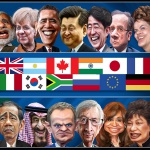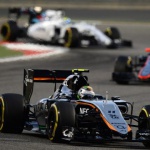
China Rising
China has the size, populace, and resources, to be the greatest power in the world. Historically they have filled that position, and over the last half century they have been rising to fill it again. But with this rise has come development. Their cities are modernising, and their citizens are becoming more educated, and more wealthy. Gone are the days of Mao’s Great Leap Forward, and furious industrialisation; China is on the brink of becoming a first world country, on par with their rivals in the West. The question, however, is what form will this China take?
There is no chance that China will suddenly adopt the features of a typical Western first world country as it develops. That is typically the path taken by most developing nations, but those nations have been Western or guided by the West. France developed similarly to Britain because they share a Western culture, and Japan developed similarly to the US because America essentially guided its development after World War II. China meets neither of these criteria. China has guided its own development with its Eastern culture, and the first-world state they form will not suddenly become harmonious with its former rivals.
Since the close of World War II, the fully developed countries of Europe have essentially accepted the United States as their proverbial leader. China will not. Only once in history was China subservient to the West, when it became a piece in the great imperial game played by Europe in the 19th Century. This period is now referred to in China as the ‘Century of Humiliation’. It is hard to overstate the feeling in Chinese culture that they should be a prominent world power, and below no nation. This is the reason why China has been relatively hostile to the West over the past half-century, and also why they declined Soviet hegemony during the Cold War. Much like their American counterparts, China will not accept second place.
Another potential difference could be a democratic system. In the West, democracy has become a byword for development, but this is not the case whatsoever in China. There, democracy has been tried once, in the Republic of China. This government was weak, stagnant, and witnessed repeated humiliation at the hands of their age old rivals in Japan, and was later overthrown by the communists in the Chinese Civil War in 1949. Since then, this Chinese democracy has been exiled to Taiwan; sustained only by consistent American support, while communist China has thrived. While it may seem bizarre to us in the West, democracy has not been widely called for since Tiananmen Square. This has not necessarily been because of political suppression, but rather government successes. In the decade post-Tiananmen, an estimated 150 million Chinese peasants were pulled out of poverty, while the economy soared. As such, the majority of China’s vast populace remains in favour of the government, and there is no guarantee that a first-world China will not retain a totalitarian regime.
Vast cultural differences will also remain a barrier between China and the Western nations. China’s society and culture is built on their own history, which bears very little resemblance to the history of Europe and America. China has never had a consistently fractured continent, an age old great empire to aspire to, or consistent, bitter religious divisions. Instead, they have had their own issues, their own wars, and their own development. This is unlike the UK and France, or Italy and Germany, which share some history. China shares essentially nothing with these nations prior to the 19th century; a first-world China will remain culturally different to its Western counterparts.
China will never be a western nation. There seems to be a vague hope that once China develops it will just happily get along with America and Europe, but it’s a vain one. Its development does nothing to change its history. However, having said all of this, we needn’t have poor relations with the great Eastern power. Treating them with respect, viewing them as an equal, and considering their desires will, as always, help to ease tensions between our two sides. But it is foolish to expect them to adapt wildly to suit our traditions.




























Discussions